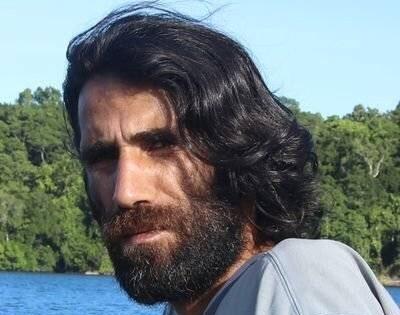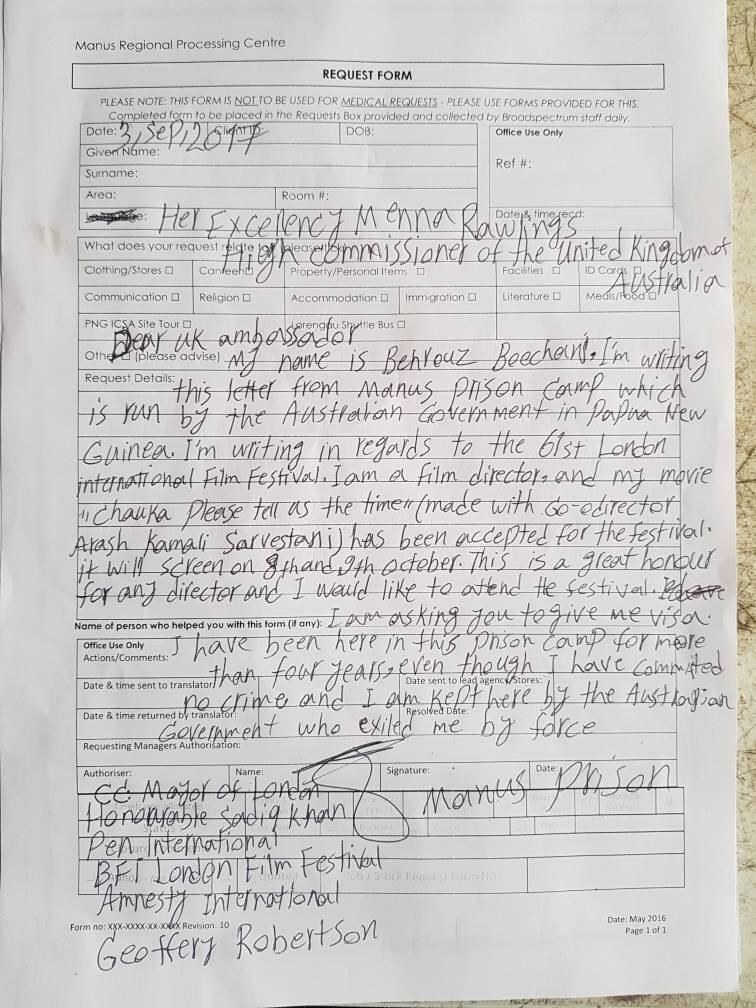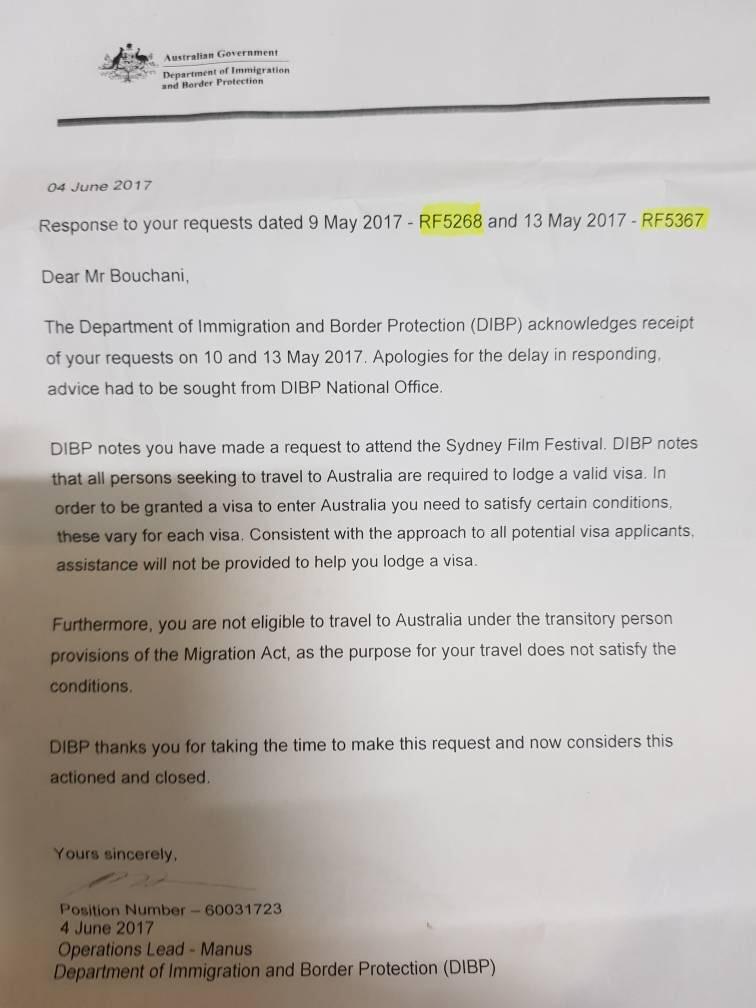Iranian refugee shortlisted for London Film Festival pleads with UK to grant him a visa
‘It’s my right to attend the festival. My movie is in the competition category and it shows that I deserve to be there,’ Behrouz Boochani tells The Independent

Your support helps us to tell the story
From reproductive rights to climate change to Big Tech, The Independent is on the ground when the story is developing. Whether it's investigating the financials of Elon Musk's pro-Trump PAC or producing our latest documentary, 'The A Word', which shines a light on the American women fighting for reproductive rights, we know how important it is to parse out the facts from the messaging.
At such a critical moment in US history, we need reporters on the ground. Your donation allows us to keep sending journalists to speak to both sides of the story.
The Independent is trusted by Americans across the entire political spectrum. And unlike many other quality news outlets, we choose not to lock Americans out of our reporting and analysis with paywalls. We believe quality journalism should be available to everyone, paid for by those who can afford it.
Your support makes all the difference.An Iranian refugee whose work about life in a Manus Island detention centre has been shortlisted for this year’s London Film Festival is pleading with the UK Government to grant him a visa.
Behrouz Boochani has been held on the Papa New Guinea island for more than four years.
He shot his film, Chauka, Please Tell Us The Time, on a smart phone, aiming to capture the hardships of the island’s notorious detention regime. It is co-produced by Netherlands-based film-maker Arash Kamali Sarvestani.
After his film was entered into the festival’s competition category, he wrote to the Australian ambassador to the UK, requesting a visa to enter the country on 8-9 October, when it is set to take place. He sent the same letter to London mayor Sadiq Khan.
Mr Boochani, who hails from western Iran, wrote that the nomination was “a great honour for any director” and he would like to attend the festival screenings.
“My movie was also selected to be shown in the Sydney Film Festival earlier this year, where it had its world premiere, but the Australian government did not allow me to attend,” he said.
“I am asking you to give me a visa to attend the London Film Festival. I have been here in this prison camp for more than four years, even though I have committed no crime, and I am kept here by the Australian government who exiled me by force.”

Mr Boochani told The Independent: “It’s my right to attend the festival. My movie is in the competition category and it shows that I deserve to be there.
“I’m sure Australian immigration won’t allow me to attend the festival. I don’t think they will let me leave this island because they don’t like the fact that I’ve told the world about this prison.
“I hope the UK ambassador and London mayor can help me. If the UK can grant me a visa, I should be able to go to London.”
When he requested permission to attend the Sydney festival, the Australian government replied that he was “not eligible” to travel to the country “under the transitory person provision of the Migration Act”.
They added: “The purpose for your travel does no satisfy the conditions.”

For more than four years, around 800 asylum seekers have been held on Manus Island.
It has been dubbed an “Australian Guantanamo”, after the detention camp set up by the US on a naval base in Cuba to hold suspected terrorists captured on the battlefields of Afghanistan.
Manus has been called “inhumane” by human rights groups.
The majority of men at the detention centre have now been formally recognised as refugees. Others have either had their claims denied, or their cases are still being assessed or appealed.
Describing the wider situation for refugees on Manus Island, Mr Boochani said it was the “hardest thing” he had experienced in his life.
Last April, Papua New Guinea’s (PNG) Supreme Court ruled that the detention of migrants on the island was illegal and violated the country’s constitution.
Over a year later, the centre is facing closure, with detainees set to be “resettled” to PNG.
But with sharp hostilities from local people on the island, refugees fear that being moved there will only intensify their suffering.
The Independent has contacted the Australian embassy for comment, but received no response at the time of publication.
Join our commenting forum
Join thought-provoking conversations, follow other Independent readers and see their replies
Comments